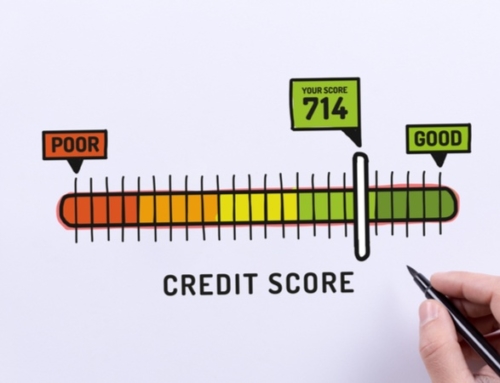What kind of credit card do you need? What kind of deal can you get?
There are different ways to approach the idea of credit and credit cards, and you need to sit down and ask yourself what’s best for you:
Do you intend to pay off your balance each month? If the answer is yes, you’ll want to look for a card that gives you something for your business. The possibilities include:
Airline miles. First Chicago Mileage Plus Bank Card Center (800-632-2505); Citibank A/Advantage 800-359-4444; American Express 800-528-4800, among others, which usually offer a mile per dollar spent, plus a few extra thousand miles for joining up.
Discounts on cars and trucks. All discounts are subject to change or elimination, but as we went to press, the GM Card from General Motors (800-846-2273) still offered 5 percent on all purchases and transferred balances up to $500 per year or $1,000 per year for their gold card over seven years. Rebates can be used toward the purchase of GM Cars and Trucks. Volkswagen Visa (800-847-7378) also offered 5 percent up to $700 per year rebate that you can use to purchase any Volkswagen car.
Cash. Discover Card (800-DISCOVER) gives you cash rebates that start at about a half percent per year and go up to 2 percent for certain amounts. GE Rewards MasterCard (800-437-3927) offers .05 percent rebate for charges of $2,000 or less per year up to 2 percent back for charges of $6,001 to $10,000. Gas station cards like Exxon MasterCard offers 3 percent back on all Exxon purchases, 1 percent on non-Exxon purchases.
Which among these are the best bet? If you often need to fly last minute and the ticket will be $1,500 or higher, and you charge or fly enough to give you at least one free ticket a year (at press time this was 20,000 or 25,000 miles, which at a mile for every dollar charged is $25,000), then this is probably the way to go.
But if you charged $25,000 on Discover, you’d earn back at least $500 and be able to buy a cheap plane ticket and have some spending money left over. With American Express, you can apply the miles to one of several airlines, or take advantage of some of their hotel specials as well.
Of course, then you have to decide if you’re willing to pay for the privilege of getting points, or miles, or discounts. If you’re going to pay $50 or $60 to carry one of these premium cards, and will only get a minimum amount back, it’s not worth it. Then, I’d go with the Discover Card, and get the cash back at the end of the year.
If you’re going to carry a balance, you should be much more interested in the interest rate, and fees charged by the card you’re carrying.
To find out which cards carry the lowest interest rate and terms, you’ll want to check out Bank Rate Monitor’s site (www.bankrate.com). Or, check with RAM Research at PO Box 1700 (College Estates), Frederick, MD 21702 (www.ramresearch.com/carttrak). You can also pay $4 for a list of the lowest-rate cards from Bankcard Holders of America, 524 Branch Drive, Salem, VA 24153.
The initial interest rate period is important, but so is how much you’re eventually going to be charged. To keep paying the least amount of interest, you’re going to want to consolidate your debt, which means staying on top of which cards have the best rates and terms and switching just before your interest rate bumps up (experts say you should be able to get the low rate for a year
The Worst Deals Out There
Sometimes getting the best deal means not getting the worst deal. What are some of the worst deals you can get on a credit card?
Some banks charge as much as 4 percent to transfer a balance to another card. So if you’re carrying a $4,000 balance and want to transfer it, you could pay as much as $160 for the privilege. Thanks, but no thanks.
Also, some credit cards can raise rates on an existing customer’s card to 24.9 percent if the company thinks you have too many other balances on too many other cards. Even if you pay on time, your rate could be jacked up until you’ve shown 18 months of good payments. Sounds like a ball and chain to me.
Many credit cards are withdrawing their offers for buyer-protection plans, coverage of damaged or stolen merchandise, extended warranties, car rental insurance. These haven’t worked well. Read the fine print if you’re expecting to make some use of these programs.
Two-cycle balance calculations are getting more popular. If you don’t pay in full each month, a card that calculates interest on the two-cycle month can kill you, interest-wise. Two-cycle credit cards require you pay in full two months in a row, or they reach back to eliminate the grace period between cycles. One cycle cards look at each billing period on its own. For example, if paid your $600 April bill in full, but only $300 of your $800 bill in May, a two-cycle method will go back and charge you two months’ worth of interest in June, wiping out your grace period from May. Look for this in the (very, very) fine print.
Some credit card companies will charge you interest from the day of purchase rather than from the day the merchant posts the transaction (which might be a few days later).
If you pay your balance in full, you might only get a 20-day grace period (or less). If you carry a balance, you might get 25 days (of course, you’re paying interest that whole time). If the fine print doesn’t say it, you should get a 25 day grace period.
Is it really a “no fee” card? Or is it just “no fee” for six months or a year?
Some banks charge you an arm and a leg on top of insane interest rates. How much are you going to pay for a bounced check? Or a late payment? These can range from $5 to $25. If you need an extra copy of a bill or a transaction, you can pay $2 to $5. Check out the obscure charges in the fine print.
Is the interest rate fixed? Or is it a variable rate. You may think you’re paying one rate, but it might adjust upward every month.
Cards colored gold, platinum, titanium, and that special material used to construct the U.S.S. Enterprise, are nice to have if you can get them because they usually allow you to charge more and may even gain extra perks. But you’ll also pay higher annual fees, transaction fees, and extra charges, and maybe even a higher interest rate on balances carried. Some Gold cards have eliminated their interest rate caps entirely. Could you conceivably pay 30 percent interest? Yup.
If you’re going the cash advance route, expect to pay through the nose for it, including interest charged from day one, transaction fees, and fewer, if any, protections. And, if you pay for casino chips or markers with a credit card, some companies will charge you as if it were a cash advance instead of a service or entertainment.
The worst news of all is this: If you’re the kind of person who’s paying off balances each month, you’re probably going to see fees go up in the future. After all, banks must maintain their profit margins somehow.
Secured Credit Cards
A secured credit card is a way for you to rebuild your financial life. Basically, you deposit money in a special account which acts as collateral for your charge account. The bank gives you a card on which you can charge up to the amount you have deposited.
If you don’t have credit, and are looking for a good secured card, you’ll want to make sure to find a bank that will pay you interest on your deposit. You’ll also want to make sure the fees are reasonable. Pay off the card on time and in full for six months in a row and then request that the bank update your credit information.
PERSONAL FINANCE TIP: When searching for the best credit card deal, you’ll have to wade through the fine print. Make sure you do before the interest starts ticking, or it could be an expensive lesson.
Don’t get lazy. If you’re switching balances, the key to getting ahead is to switch before the interest rate goes up and before the fees kick in.
A lot of people feel empowered by switching to a lower-rate card with better terms. If you’re just pulling your finances out of the muddy waters of debt, cutting up charge cards and choosing new ones can be a liberating experience.
Just don’t get carried away and start accepting every charge card offer your mailman brings by, otherwise you may find yourself back in the same position you were in before.






Leave A Comment